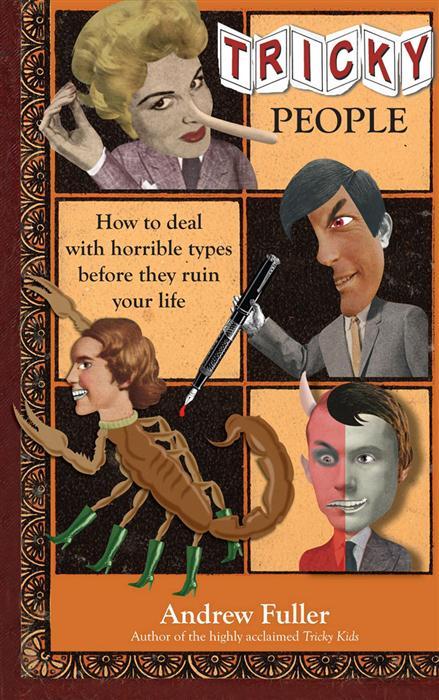We’ve all come across tricky people in our travels. They are lurking everywhere actually – at your work, in your family, at parties and even in romantic relationships! The tricky person in your life could even be you? What if it is??
I invite you to read on!
I’ve owned this book for some time and the more I reference it, the more I know it to be true. The book I’m referring to is “Tricky People”, authored by Andrew Fuller, Clinical Psychologist and Family Therapist. I’ve actually had the privilege of hearing this guy speak in person – I honestly could have listened to him for the entire day (that didn’t get to happen, by the way!).
The book, Tricky People – How to deal with horrible types before they ruin your life, had lots of ‘aha’ moments for me. I love how Andrew writes, it’s real and honest and has come from a wealth of experience.
The book is laid out really well – chapter one is the overview and the remaining chapters talk about the different types of tricky people.
The first chapter actually looks at our own strengths and vulnerabilities – and profiles whether we are ruled by the north, south, east or west. Note: as self aware as you think you are, depending on the day and your frame of mind, this can slightly change your strengths and vulnerabilities. Interesting, huh?!
I really enjoyed that it is a book that doesn’t have to be read all at once and can be referred back to easily when you encounter said tricky people.
I know you’re wondering – in the ‘spotter’s guide section, Andrew classifies the groups of tricky people as:
Back-stabbers and White Anters
The Blamers and Whingers
The Bullies and Tyrants
The Controllers
The High and Mighties
The Avoiders
The Competitors
The Poor Communicators
Again with brutal honesty, the book even tackles if the tricky person is YOU!
I think you will find it to be such a great read – entertaining as well as helpful AND it is full of actual applicable skills to approach tricky people.
Go forth, recognise the tricky people in your life, and then get your hands on the book!! And please do share your highlights, we love feedback!



